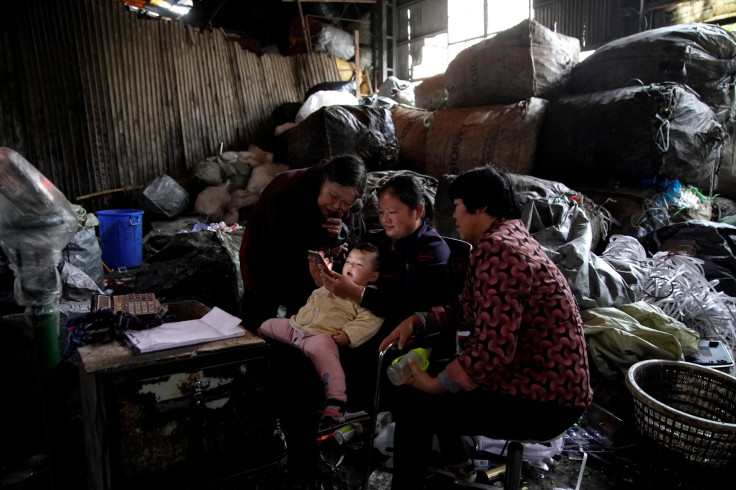Gender Inequality In China Could Be Worsened By Two-Child Policy

On Jan. 1, 2016, when China officially changed its policy on the number of children many couples in the country could have — increasing it to two from one — it was lauded by many as a step in the right direction for a number of reasons. China’s own reasoning behind changing the 1979 policy was to tackle the problem of an ageing population.
However, there may be unintended and unforeseen negative effects of the change, one of which is the worsening of gender inequality in the world’s most populous country, according to a study by two researchers from the University of British Columbia, Canada, and Renmin University of China in Beijing.
The one-child policy didn’t apply uniformly to the entire country, with more than 50 percent of couples being allowed to have two children. So, with the new policy, an estimated additional 90 million women became eligible to have two children instead of one. But just because they can, doesn’t mean all those women would all necessarily want to have a second child, a factor the researchers called “fertility autonomy.” This was influences by marital power, a combination of their income, education and other resources, as compared to their husbands.
“When husbands have greater marital power, fertility pressure from the husband increases the likelihood that women intend to have a second child, despite the fact that they have achieved their desired fertility. In contrast, when women have greater power in a marriage, their second-birth intentions do not change with levels of fertility pressure from their husbands,” Yue Qian, the study’s lead author and an assistant professor in the department of sociology, explained in a statement Friday.
The researchers reached their conclusions based on data from the “2016 Survey of the Fertility Decision-Making Processes in Chinese Families.” One of the questions in the survey asked women to indicate who they thought — husband or wife — had greater power in the family. The answers showed self-reported power structures were linked to the income, education and other material sources of the individuals among most couples.
The Chinese government does not provide welfare benefits to mothers, such as state-funded child care facilities or subsidies, making motherhood a big contributor to the pay gap between genders. Therefore, women, especially in urban China, who choose to be mothers tend to lag behind men in both employment and earnings.
“Our study suggests the two-child policy may exacerbate a vicious circle of gender inequality in post-reform China. Women’s disadvantaged status in the labor market exacerbates gender inequalities in access to resources, and the fewer resources wives have relative to their husbands may diminish women’s bargaining power, their ability to push for equality in the family, and their ability to stop childbearing when they don’t want additional children, which may in turn jeopardize women’s careers,” Qian said.
Titled “Women’s Fertility Autonomy in Urban China: The Role of Couple Dynamics Under the Universal Two-Child Policy,” the study appeared online Wednesday in the journal Chinese Sociological Review. Yongai Jin of Renmin University, China, was its coauthor.
© Copyright IBTimes 2024. All rights reserved.





















